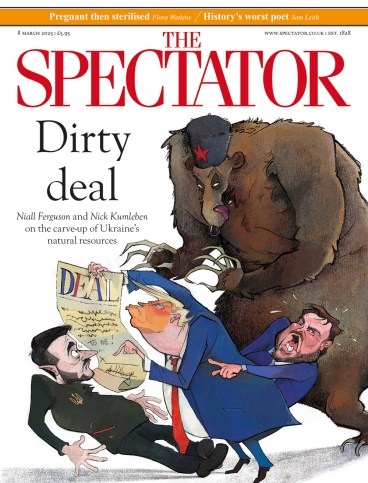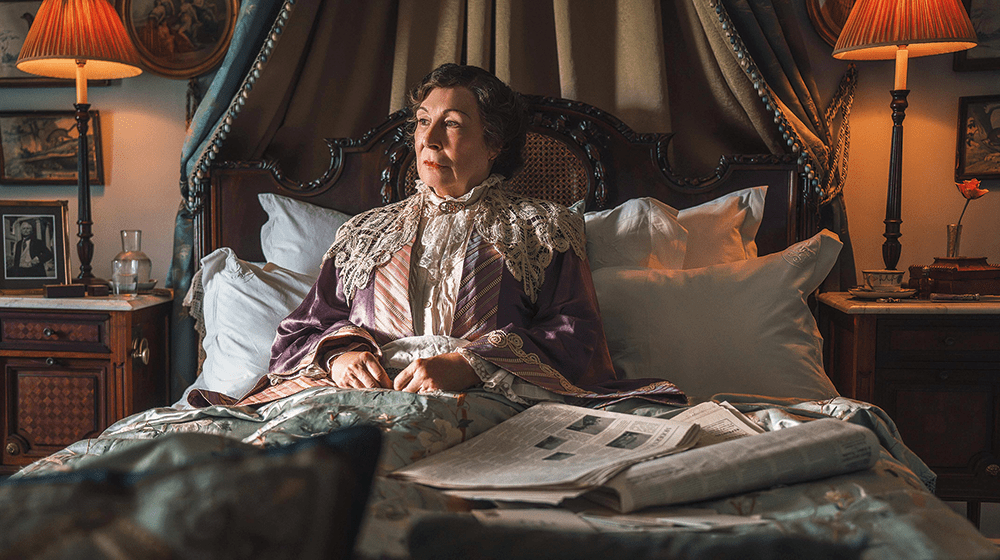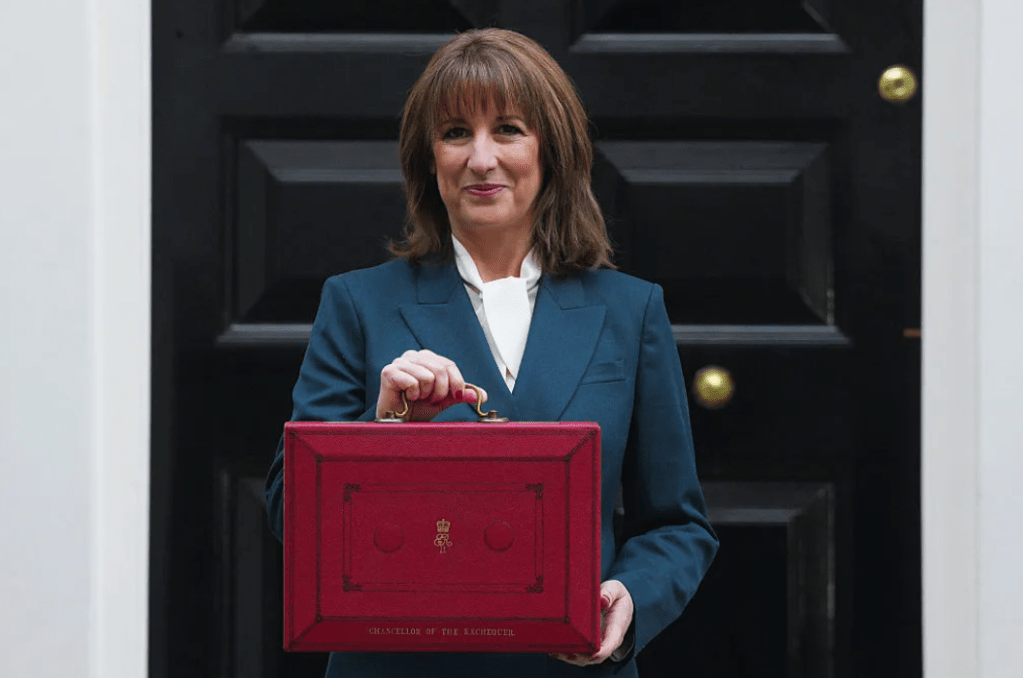
Coincidentally, two of this week’s big new dramas began with a fourth wall-busting declaration of their narrative methods. At the start of Towards Zero, BBC1’s latest Agatha Christie adaptation, a man we later discovered to be a lawyer addressed the camera. ‘I like a good detective story,’ he told us. ‘But they begin in the wrong place. They begin with the murder’ – which should instead ‘come at the end of a long chain of cause and effect’. Get Millie Black opened with a voice-over explaining that ‘This is just another story about Jamaica… But like all stories in this country, it’s a ghost story’. As it transpired, both programmes followed their own prescripts – but in one case, with distinctly mixed results.
A major selling point of Towards Zero was Anjelica Huston as Lady Tressilian, the bed-ridden matriarch of a large Devon pile in the 1930s. Naturally, it wasn’t long before she was joined by such house guests as a family black sheep from the colonies, a posh cad, a shady valet and two brittle women who signalled their raciness by sometimes wearing trousers.
These people did, however, have one thing in common: Lady T. disapproved of them all. The worthiest recipient of her unceasing froideur was probably her nephew Neville, who’d elected to arrive with his new wife Kay and his old one Audrey, whom he’d recently and bitterly divorced.
This decision proved an implausibility the programme never really got over. Meanwhile, Kay and Audrey spent much of the first episode apparently engaged in a competition as to who could wear more lipstick, and flashing little smiles of triumph whenever they received some of Neville’s strictly alternating attention.
Then again, there wasn’t much else for them to do, as the long chain of cause and effect plodded inscrutably onwards. Having watched all three episodes on iPlayer, I can assure anyone who’s seen only Sunday’s opener that the show does perk up intermittently once somebody’s killed. It also benefits greatly from Matthew Rhys as Inspector Leach, a man so world-weary that he appears to regard investigating a murder as a useful way of passing the time between suicide attempts.
The show does perk up intermittently once somebody’s killed
Rather ungallantly, Rhys also comprehensively upstages Angelica Huston. Despite her impeccable English accent, Huston remains badly stymied by the fact that Lady T.’s immobility extends to her character development.
Towards Zero achieves many of the things you’d want in a Christie adaptation: lovely frocks, red herrings, lavish interiors, maids adjusting the back of their hair before answering the front door, charged dialogue languidly exchanged over the dinner table. Nonetheless, the most striking impression you’re left with is how wrong that lawyer was in the first scene. Turns out it may be best for detective stories to begin with the murder after all.
Anybody who’s read Marlon James’s superb 2015 Booker winner A Brief History of Seven Killings won’t have been surprised that his TV-writing debut certainly doesn’t idealise his native Jamaica. In Get Millie Black’s first scene, a woman showed how Christian she was by battering her excessively effeminate young son Orville with a belt, before sending his loving sister Millie away from his corrupting influence to relatives in England. Shortly afterwards, Millie got a call in which her old mum gave her the somewhat terse message, ‘Him dead’.
From there, Millie became a Met Police officer, until she found out her brother was still alive and returned to Jamaica to become a cop there and to find him. Or rather, to find her – because the Orville she knew is now a transwoman called Hibiscus, still haunted by her mother’s cruelty as Millie is haunted by her now disappeared brother. But the ghost-story aspect doesn’t end there. As Millie told us in another voiceover: ‘In this country nothing haunts like history. Pick something ugly, shameful, violent and you can see a shadow stretching back 400 years.’
This makes for a programme that’s by turns thrilling, touching and illuminating
In the first episode of two this week, the ugly, shameful, violent stuff originated with the disappearance of 16-year-old Janet, last seen getting into a car belonging to a white Jamaican playboy whose family money comes from slavery and whose own tastes run to underage ghetto girls. When Millie visited his parents, they duly threatened to use their powerful contacts against her – but had reckoned without her fearless decency.
Ambitiously, then, Get Mille Black has three strands, each of which would be enough for a series: Millie and Hibiscus’s relationship; an anatomisation of Jamaican society; and a fairly traditional thriller in which the heroic cop has to fight both the bad guys and her own pen-pushing superiors.
In lesser hands, one of these strands might feel either slightly overlooked or just a bit dutifully done. James, though, is equally uncompromising in his commitment to all of them – making for a programme that’s by turns thrilling, touching and politically illuminating.






Comments